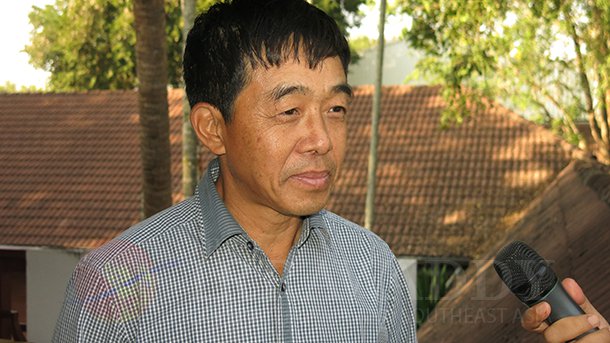Leaders of the Kachin Independence Army (KIA) said they will observe a nationwide ceasefire meeting between the Burmese government and an alliance of ethnic armed groups on March 16, while there are tentative plans for a bilateral meeting between the KIA and the government.
Gen. Gun Maw, KIA deputy chief of staff, said the Burma Army had provided safety guarantees for 20 leaders of the KIA and their political wing, the Kachin Independence Organization (KIO), to drive from Laiza to Rangoon in order to observe the meeting between the government’s Union Peacemaking Work Committee and nationwide ceasefire negotiation team (NCCT).
He said he expected to get confirmation of a bilateral meeting between the Kachin rebel leaders and the government in the capital Naypyidaw.
“We might have to stop on the way [in Naypyidaw] for meeting while we travel from Mandalay to Yangon,” he said, adding, “We won’t talk the specific things [in Naypyidaw], such as military affairs, because these are under the discussions in the nationwide ceasefire text.”
The KIA have not held talks with Minister Aung Min, the government’s lead ceasefire negotiator, since a surprise artillery attack by the Burma Army on a KIA training camp killed 23 cadets of various ethnic groups on Nov. 19.
Tension remains high in northern Burma, where the KIA said it has come under growing military pressure in recent months. The government has accused the KIA of supporting the ethnic Kokang rebels against with whom the Burma Army has fought pitched battles since Feb. 9.
The KIA is an influential group within the NCCT, an alliance of 16 ethnic armed groups that have held seven meetings with Aung Min since mid-2013 to reach a nationwide ceasefire accord. The KIA has downgraded its participation in the process since the shelling incident.
The Ta’ang National Liberation Army, which is an ally of the KIA, will also participate as observers to the meeting. The TNLA, like the KIA, lacks a bilateral ceasefire with Naypyidaw. It has actively fought alongside the Kokang rebels known as the Myanmar National Democratic Alliance Army (MNDAA).
The government refuses to recognize the latter group and it will not participate in the upcoming meeting.
Since August, there have been no nationwide ceasefire meetings after the negotiation process hit a deadlock with the sides unable to bridge differences over key issues such as autonomy for ethnic minority region within a federal union.
Following the lack of a breakthrough, fighting has escalated in Kachin and northern Shan states, with particularly intense clashes between the Burma Army and ethnic Kokang rebels in recent weeks that have killed dozens of soldiers and rebels, and displaced tens of thousands of civilians.
The NCCT and government negotiators are attempting to reach a nationwide ceasefire agreement, which Naypyidaw says is necessary before a dialogue can begin to address ethnic groups’ grievances and political aspirations.

















